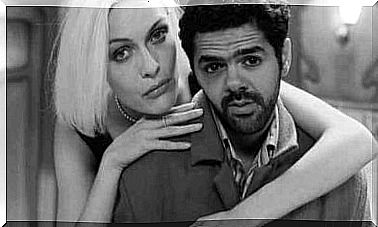3 Strategies For Dealing With Obsessions

It is difficult to deal with obsessions. It takes a lot of willpower and discipline, and it is a constant struggle against parts of one’s own mind that one is not always aware of. Only the person who goes through these problems himself really understands how difficult it is. Part of you wants to get out of that cage and another part does everything to ensure that nothing changes.
To deal with obsessions, you must first understand who they are. For example, there are thoughts that have a tendency to get stuck in your head. They occur for no apparent reason and block other thoughts, and you get stuck in a situation where you can not focus on what you want. The thoughts mostly touch on very intense things, such as disasters and situations where you get sick.
Behind these thoughts are many things from the past that have not been remedied. In addition, they are almost always related to guilt; either those who are unconscious or those who have simply not been confronted and corrected. The recurring thoughts become a kind of punishment for something you may have done and which you thought was terrible. Fortunately, on the other hand, there are ways to deal with obsessions so that they do not occur as often. We will describe these techniques below:
A good way to deal with obsessions is to see them as a form of quicksand or as a trap. Imagine being caught in a pit with quicksand. Your instincts will make you want to get out of the pit as soon as possible, but if you try to move, you will sink even further down.
It is the same with obsessions. You can only get out of the quicksand if you calm down and understand that you are in a place where you have to think about every movement you make. If you calmly lie on your back and try to float, you will slowly but surely move ever closer to the edge.
You should also not try to fight against obsessions. There is no point in trying to resist. You can think about them for 15 to 20 minutes but then you should try to do something else.

If you want to be able to handle your obsessions properly, you should try to stick to them. Accept that for a certain amount of time you will go through a certain amount of discomfort. If you admit to yourself that you are going through these feelings, they will slowly disappear – especially the anxiety.
This kind of emotion will fade if you just let it go. It’s like having a mosquito bite that really annoys you. You can feel it, but you choose not to itch. It’s annoying, of course, but you know it will eventually disappear.
The discomfort will continue until a certain level, and then it will begin to decrease. It is important that you do not try to relieve the itching by itching. You need to do the same with anxiety and other negative thoughts.

Keep in mind that your goal is to deal with obsessions, not to prevent them because it is something you can still not decide. It often requires a long process where you use psychotherapy. However, you can also perform some exercises yourself to help yourself on the run:
- Talk loudly about your thoughts for a minute. Remember not to talk about the idea itself but about it. You should also talk fast. It does not matter if what you say does not seem to be true, because it is not so important. You can also just say one or two words if you want. For example, if you are anxious about someone breaking into your home, repeat the phrase “robbers-come-in” for a minute, quickly and without interruption.
- Sing. Choose a melody that you like and try to give it a text that is about your obsessions. Then start singing your song as soon as the thoughts start to come.
- Draw your obsessions. Give them a shape. Create characters in a story if you like. Fill your drawings with colors, details and everything you can think of.

As we mentioned at the beginning, it is not easy to deal with obsessive thoughts, but if you are consistent with your exercises, you will notice that the thoughts return less and less. Also feel free to hire a therapist if you feel you need it.









